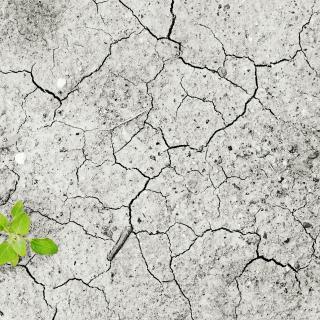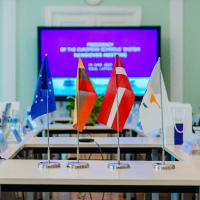How can education contribute to awareness and action on climate change?

"We can create transformational action that will safeguard the living conditions for future generations." – Greta Thunberg
Climate change is a topic unlike any other. While the prospect of human-induced global destruction may sometimes seem too overwhelming to address, everyone has a part to play in halting it. This is the message of a major social movement of schoolchildren that has risen up in response to the inadequate actions of our politicians. But if we all need to act differently, what does this imply for the way in which we educate our children?
Those who now are children will be affected most – or certainly longest – by climate change. What kind of future will there be for them? What will they do about climate change? Do they know what it is and what it implies?
According to Unesco, "education is critical in helping populations understand and address the impacts of climate change, and in encouraging the changes in attitudes and behaviour needed to help them address the causes of climate change, adopt more sustainable lifestyles and develop skills that support different modules of economies, as well as to adapt to the impact of climate change". Unesco promotes climate change education (ECC) as part of its Global Action Programme on Education for Sustainable Development (ESD). Education for sustainable development is a component of the fourth sustainable development goal on education. Goal number 13 on climate action targets the improvement of education on climate change. Indeed, education is about teaching young generations to understand and reflect on the physical and social world surrounding us so that they become citizens able to think critically, participate in decision-making and take action. Climate change education is therefore also citizenship education.
The international community has recognised the importance of climate change education. In article 6 of the United Nations Framework Convention on Climate Change, the 197 parties commit to "the development and implementation of educational and public awareness programmes on climate change and its effects", on national and international levels. Equally, the parties to the Paris Agreement commit to enhance climate change education in article 12.
But how do these commitments, acknowledgements and programmes translate into practice? Unesco has published guidelines on how to promote "climate literacy". It is the responsibility of governments to integrate climate change education into all levels and aspects of education systems. This requires coordination, support and resources. Education experts can develop curricula and teaching methods. It should be included in initial and ongoing teacher training so that teachers acquire the necessary knowledge and competences for climate change education. Climate change should also be widely communicated and discussed in the public spheres.
But what exactly would high quality education on climate change be like? Climate change can be a challenging topic for teachers to address with their students. Education on climate change is grounded in science – but it is also about behaviour and action. It is about the environment and economy, but also about equality and social organisation. It promotes future citizenship that is environmentally and socially responsible on a global scale.
Whatever it will become in the future, climate change education has not yet been established as an independent subject anywhere. Where it exists, it is usually integrated within different school subjects and considered as part of the policies and practices on education for sustainable development. The level of policy adoption and implementation of the Global Action Programme on Education for Sustainable Development varies across countries. However, there are promising commitments and initiatives. The Global Education Monitoring Report 2016 found that of the 78 countries investigated, about three-quarters had included sustainable development in their curricula.
The Swedish 16-year old climate change activist Greta Thunberg has stated: "Some say I should be in school. But why should any young person be made to study for a future when no one is doing enough to save that future? What is the point of learning facts when the most important facts given by the finest scientists are ignored by our politicians?" Climate change should be embedded in education systems as it is affecting our environment and social fabric, and reshaping the ideas on how we should live our lives. Paradoxically it may have taken a global movement of children missing classes to alert us to this. Surely it is now high time to get the topic of tackling climate change back into the classroom.
Authors: Jasmin Mäki and David Crosier




